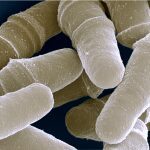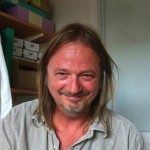Lien vers Pubmed [PMID] – 28087675
Lien vers HAL – Cliquez ici
Lien DOI – 10.1093/femsyr/fox002
FEMS Yeast Res. 2017 Jan;
Life is maintained through alternating phases of cell division and quiescence. The causes and consequences of spontaneous mutations have been extensively explored in proliferating cells, and the major sources include errors of DNA replication and DNA repair. The foremost consequences are genetic variations within a cell population that can lead to heritable diseases and drive evolution. While most of our knowledge on DNA damage response and repair has been gained through cells actively dividing, it remains essential to also understand how DNA damage is metabolized in cells which are not dividing. In this review, we summarize the current knowledge concerning the type of lesions that arise in non-dividing budding and fission yeast cells, as well as the pathways used to repair them. We discuss the contribution of these models to our current understanding of age-related pathologies.


